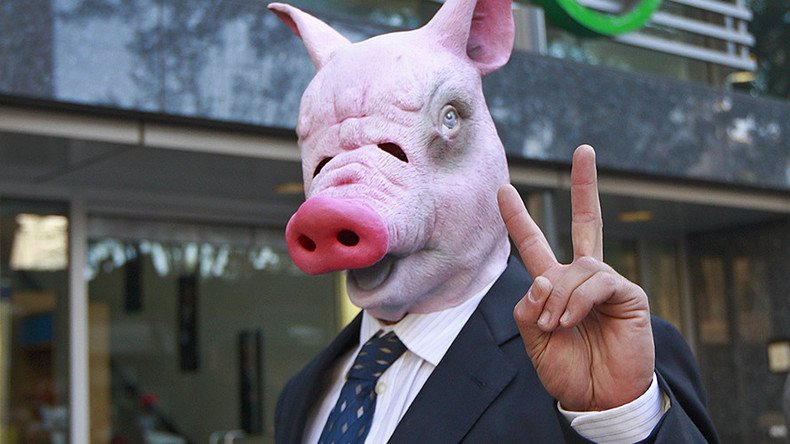Animal Farm: Scientists create first pig-human hybrid (PHOTO)

Scientists have created the first human-pig hybrid in a groundbreaking study that marks the first step in growing human organs inside animals.
Named chimera, after the cross-species beast in Greek mythology, the pig-human embryos were created in the Salk Institute for Biological Studies in La Jolla, California and are the first hybrid made using two large, distantly-related species.
“The ultimate goal is to grow functional and transplantable tissue or organs, but we are far away from that,” Juan Carlos Izpisua Belmonte, who led the project, said. “This is an important first step.”
First peer-reviewed account published of creating pig–human hybrid fetuses; other chimaeras also reported: https://t.co/zuOCJjI5CUpic.twitter.com/YOM7RJMQRz
— Nature News&Comment (@NatureNews) January 26, 2017
Human stem cells were injected into young pig embryos, which were then placed in surrogate cows. Of the more than 2,000 embryos, only 186 turned into chimeras – largely pig, with human elements in 1 out of 10,000 cells.
After 28 days of a pig’s 112-day pregnancy, the pig-humans were removed as scientists say the embryos had developed enough for them to study in what way the cells mix together “without raising ethical concerns about mature chimeric animals,” Izpisua Belmonte said.
As a pig’s gestation period of under four months is so much shorter than that of a human, the two species’ cells develop at different rates, providing a challenge for future chimera experiments.
Scientists Create First Human-Pig Chimeric Embryos https://t.co/6zRgWgLPLipic.twitter.com/FO05qa4SA4
— The Scientist (@TheScientistLLC) January 26, 2017
Even though a fully developed pig-human being born is a long way away, a chimera with human tissue can be used to study human disease and the differences in organs in differing species.
Despite excitement surrounding the pig-human, concerns have been raised about the ethical implications of mixing human with animal.There is a worry that humanized animals, or animals with human brains could pose a threat to humanity.
South Korean geneticists to try clone extinct Siberian lions https://t.co/UPbZ4wGWFGpic.twitter.com/HpjHgwzvVG
— RT (@RT_com) March 6, 2016
“The idea of having an animal being born composing of human cells creates some feelings that need to be addressed,” Belmonte said. "Not everything that science can do we should do. We are not living in a niche lab, we live with other people – and society needs to decide what can be done.”
“Our next challenge is to improve efficiency and guide the human cells into forming a particular organ in pigs,” he said.












